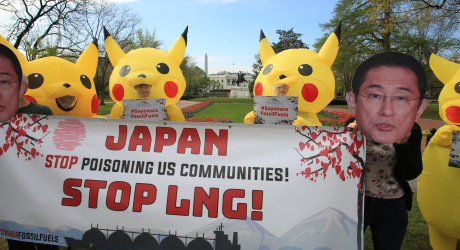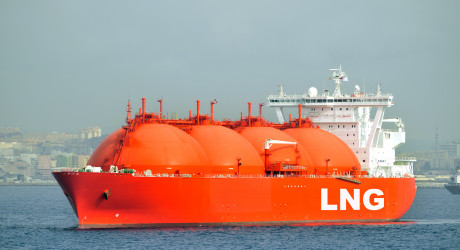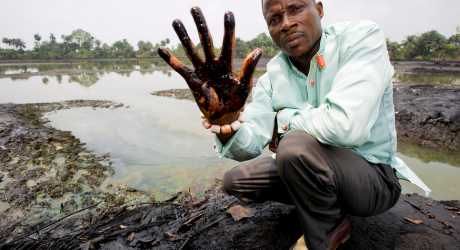GLOBAL POLICY
The Paris climate goals demand a rapid, just transition from fossil fuels to clean energy. We’re pushing governments to lead the way by adopting policies to end oil and gas production.
OVERVIEW OF WORK
In order to achieve climate goals, governments and other decision makers must support a just and equitable move away from fossil fuels. We are pushing for precedent-setting leadership from governments to put policies in place to manage the decline of oil and gas and ensure a just transition for fossil-fuel dependent workers and communities.
Building from a growing group of first mover governments, we are pressuring for increasing numbers of national and regional governments to end new licenses and permits for oil and gas production, and to develop plans to wind down their existing production over time.
LATEST PROGRAM POSTS
Japan is continuing to drive the expansion of fossil fuels across Asia and is derailing the transition to renewable energy. This harms communities and ecosystems, undermines energy security, and worsens the climate crisis. The facts speak for themselves.
A letter delivered to U.S. President Biden from 560+ organizations around the world applauded Biden's decision to halt pending LNG export approvals and called on him to expand the pause to halt all permitting of new LNG infrastructure and export projects.
Last month, it was widely reported that another chapter in Shell’s dirty and disastrous eighty-seven-year operations in the Niger Delta was coming to an end, with the company selling its onshore business.
While Manchin and his industry allies spread tired old myths about America saving the world from Putin and Chinese coal plants, the reality is the energy transition is already moving away from gas faster than most people think. That action needs to focus on a phase-out of all fossil fuel exports and protections and reparations for the frontline communities.
LATEST PROGRAM RESEARCH
Lifting the Ban, Cooking the Climate
The Climate Impact of Lifting the Crude Oil Export Ban
March 2014
The U.S. oil industry’s biggest players, including ExxonMobil and the American Petroleum Institute, are calling for an end to the U.S. ban on crude oil exports that has been in place for more than four decades since the 1973 Arab oil embargo. Their reasons are clear, as lifting the ban would boost profits by enabling companies to sell American oil at higher global market prices.
What few have considered, however, are the climate impacts that would result from ending the ban. Allowing U.S. crude oil
'Frozen Future' warns investors of the risks to shareholder value from Royal Dutch Shell’s Alaskan Arctic drilling program.
In 2009, President Obama made a commitment to reduce U.S. greenhouse gases by 17 percent by 2020. The Obama administration put this forward as the U.S. share of a global effort to limit climate change to no more than two degrees Celsius – the target scientists tell us may be safe. Achieving this target, which has been unanimously agreed on a global level, is central to the success of President Obama’s Climate Action Plan, announced in June of last year.
It is therefore shocking to realize that the State Department completely failed to take this target into account when evaluating the




